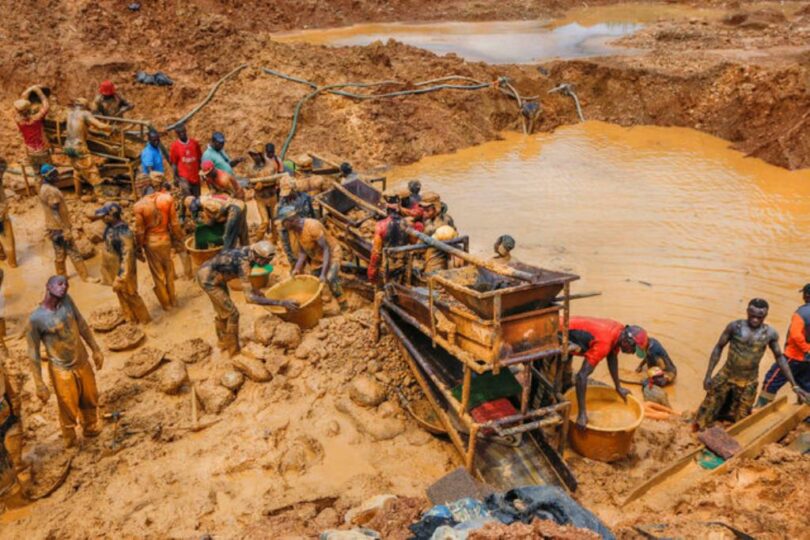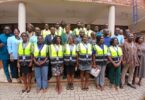Source: Environmental News Desk
WACAM, the Centre for Public Interest Law (CEPIL), and the Centre for Environmental Impact Analysis (CEIA) have issued a collective statement highlighting the severe impacts of surface mining operations in Ghana. Dedicated to promoting and protecting the rights of communities and the environment, these organizations have worked tirelessly for over two decades in more than 120 mining-affected communities.
Over the past two decades, we have worked in over 120 mining-affected communities, empowering residents to effectively engage with stakeholders in the mining sector and advocate their interests, as well as those of the country. Some of the key issues we have addressed include, but are not limited to:
Human Rights Violations
-
Brutalization by Security Forces: Communities have faced brutal actions from military and police forces acting on behalf of mining companies.
-
Unlawful Arrests and Detentions: Residents asserting their rights have been unlawfully detained.
-
Shooting of Suspects: Incidents of violence, including the shooting of suspects, have been reported.
Environmental Pollution
-
Cyanide Spillages: The introduction of cyanide-based gold extraction has led to numerous cyanide spillages. Ghana recorded 19 official spillages between 1989 and 2003, with ongoing incidents affecting water bodies and lands.
-
Mining in Forest Reserves: Mining in protected forest areas has caused severe environmental damage.
-
River Pollution: Rivers, essential for community water supplies, have been heavily polluted. Notably, Newmont Ghana Gold Limited discharged mine waste into River Subri in 2010 and 2011.
Economic and Social Displacement
-
Displacement of Communities: Mining operations have displaced entire communities, exacerbating poverty.
-
Inadequate Compensation: Farmers have received minimal compensation for their land, worsening economic conditions.
Research Findings
-
Heavy Metal Pollution: Studies in Tarkwa and Obuasi have shown alarming levels of arsenic, cadmium, mercury, and lead in water bodies.
-
Air Quality Issues: Elevated levels of cyanide and heavy metals in rainwater indicate poor air quality.
Weak Regulatory Framework
-
Ineffectual Laws: The Minerals and Mining Act, 2006 (Act 703), lacks the strength to hold mining companies accountable for violations.
Section 17: Water Rights: “Subject to obtaining the requisite approvals or licenses under the Water Resources Commission Act 1996 (Act 552), a holder of a mineral right may, for purposes of or ancillary to the mineral operations, obtain, divert, impound, convey, and use water from a river, stream, underground reservoir, or watercourse within the land the subject of the mineral right.”
Section 108(1): General Penalty: “A person found guilty of an offence under this Act for which a penalty has not been provided is on summary conviction liable on first conviction, to a fine not more than the cedi equivalent of US$ five thousand.”
Section 109: Penalty to be Civil Debt: “Except otherwise provided in this Act, where a fine is imposed on a person, under this Act or Regulations made under this Act and there is failure to pay the fine, the amount shall be recoverable as a civil debt owed to the state.”
-
Regulatory Capture: Weak enforcement of regulations due to political and corporate connections.
Broader Implications
-
Chocolate Production and Cocoa Farming: The increase in global chocolate consumption has raised cocoa prices, yet surface mining threatens cocoa farms.
-
Cultural Impacts: Chiefs and traditional authorities, who rely on rivers for cultural rites, are directly affected by river pollution.
Call to Action
WACAM, CEPIL, and CEIA propose several solutions to address these issues:
-
Non-Partisan Approach: A unified effort involving all sectors of society to combat mining-related problems.
-
Moratorium on Mining Licences: A halt on granting new mining licences.
-
Joint Citizens’ Mass Actions: Engaging clergy, churches, workers, market women, media, and traditional authorities in mass actions to hold the government accountable.
-
Regulatory Overhaul: Comprehensive review and strengthening of mining laws to include stringent environmental safeguards.
These organizations urge the government and stakeholders to adopt a non-partisan stance and take decisive actions to address the root causes of surface mining problems in Ghana.
END
About WACAM: WACAM is a premier community-based human rights and environmental mining advocacy NGO in Ghana, supporting communities to protect their environment and livelihoods from the negative impacts of mining.
About CEPIL: The Centre for Public Interest Law (CEPIL) is a nonprofit organization dedicated to promoting and protecting public interest law and human rights.
About CEIA: The Centre for Environmental Impact Analysis (CEIA) focuses on promoting sustainable environmental practices and analyzing the impacts of industrial activities on communities.
Source: www.thenewindependentonline.com








